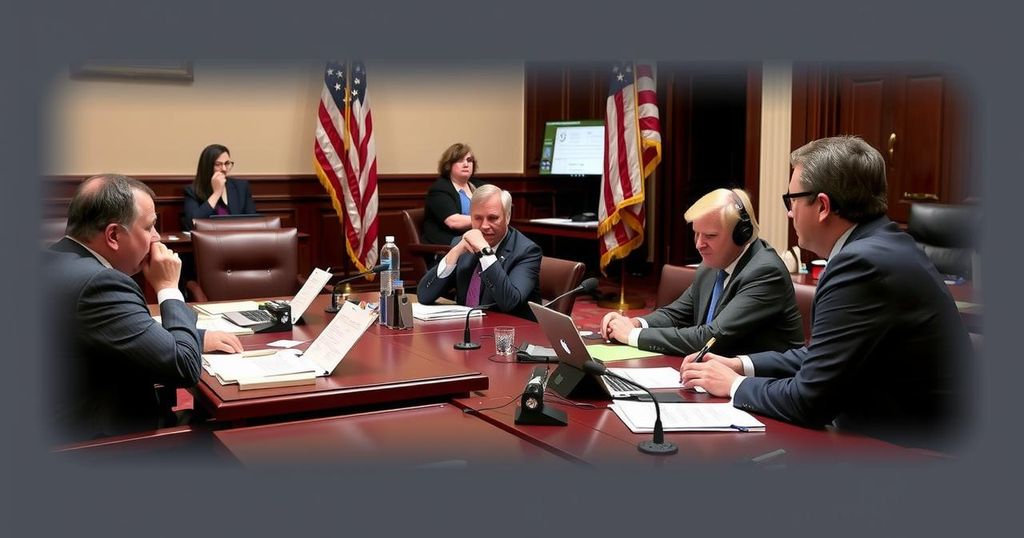Politics
13TH CONGRESSIONAL DISTRICT, ADAM GRAY, CALIFORNIA, CHILE, CIVIL RIGHTS, DUARTE, ELECTION, FRESNO, GRAY, JOHN DUARTE, LEGISLATION, MADERA, MERCED, MODESTO, NORTH AMERICA, PRESIDENTIAL ELECTION 2024, SACRAMENTO, SAN JOAQUIN, SOUTH AMERICA, STANIS, STANISLAUS, STANISLAUS COUNTY, UNITED STATES
Fatima Khan
0 Comments
Alanis Proposes Legislative Changes to Enhance California’s Election Process
Assemblyman Juan Alanis introduced two bills aimed at improving California’s election process, addressing delays in result announcements and promoting public access to precinct information. Assembly Bill 16 seeks to allow early processing of mail-in ballots, while Assembly Bill 17 mandates transparency regarding voting boundaries. Alanis underscores the necessity for bipartisan efforts to enhance electoral efficiency and public trust.
Assemblyman Juan Alanis (R-Modesto) has introduced two significant bills aimed at enhancing the electoral process in California. These bills, presented at the beginning of the new legislative session, directly address concerns about the delay in election result announcements, particularly highlighted during the closely contested race in California’s 13th Congressional District. Alanis emphasized the necessity for more efficient ballot processing and transparent access to county election information, citing the negative impact of current policies on public trust in the electoral system.
In his remarks, Assemblyman Alanis recounted the discontent associated with the extended time it took to declare the results of the recent congressional race, which was characterized by a mere 187-vote margin. Such delays, he argued, are unacceptable compared to other nations that can report results within hours. To combat this issue, Assembly Bill 16 proposes allowing local elections officials to begin processing mail-in ballots upon receipt rather than waiting until Election Day, which could significantly expedite the overall timeline for result reporting.
Moreover, Assembly Bill 17 is focused on increasing public access to electoral data by requiring local registrars to provide clear information on precinct boundaries. Alanis asserted the need for voter engagement and transparency in the electoral process, underscoring the importance of aligning public access with the responsibilities of voting. He recognized the complications faced by voters due to fragmented information across multiple county websites in the recent election, which complicated the understanding of remaining vote counts.
Alanis has expressed a commitment to working across the aisle with other legislators to refine and advance these bills. He remains open to discussions around electoral reforms, understanding that improving the election process is a sensitive yet vital issue that calls for collaborative efforts. He concluded his address by advocating for the integration of existing technology to achieve a more effective electoral system in California.
The introduction of Assembly Bills 16 and 17 by Assemblyman Juan Alanis addresses growing concerns over the sluggish pace of election results in California. Specifically, the legislation responds to the protracted timelines faced in declaring election results, particularly in the highly competitive congressional race for California’s 13th District. Such delays have raised questions regarding the effectiveness and efficiency of the state’s electoral processes, thereby potentially eroding public trust. The bills seek to streamline ballot processing and enhance transparency regarding electoral precinct information, promoting greater public engagement.
In conclusion, Assemblyman Juan Alanis’s introduction of Assembly Bills 16 and 17 marks a vital step towards improving California’s election process. By proposing to expedite mail-in ballot processing and enhance accessibility to precinct information, these bills aim to restore public confidence and engagement in elections. The call for bipartisan collaboration reflects a keen awareness of the importance of electoral reform in maintaining the integrity of California’s democratic processes.
Original Source: www.cerescourier.com




Post Comment